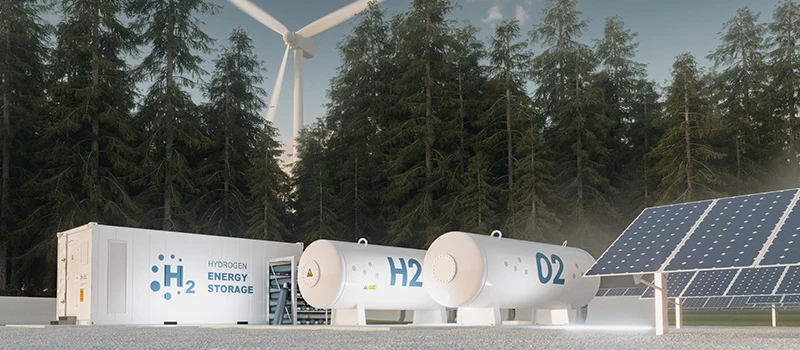
We lead research in this field in Brazil, developing new technologies for hydrogen production from renewable sources. Hydrogen is an extremely versatile fuel that can be used in a wide range of applications, from electricity generation to chemical manufacturing.
Among the various renewable sources of hydrogen are:
Water electrolysis is the most common process for producing hydrogen from renewable sources. In this process, electricity is used to separate water molecules into hydrogen and oxygen. The electricity can be generated from renewable sources such as solar, wind, and hydroelectric power.
Biomass fermentation can also be used to produce hydrogen. In this process, microorganisms break down biomass into its basic components and produce hydrogen as a byproduct. Biomass can come from various sources, such as agricultural waste, wood, and urban waste.
Biomass gasification is another process that can be used to produce hydrogen. In this process, biomass is heated to high temperatures in an oxygen-free environment, producing a hydrogen-rich gas known as synthesis gas. The synthesis gas can then be processed to produce hydrogen.
Despite the challenges in this field, E-Renova believes that hydrogen production from renewable sources is a promising solution for transitioning to a low-carbon economy. Hydrogen is a clean and versatile energy source that can help reduce greenhouse gas emissions and provide sustainable energy for future generations.
E-renova – Pesquisa, Desenvolvimento e Inovação em Energias Renováveis | Política de Privacidade | Projeto web: Agência CWS